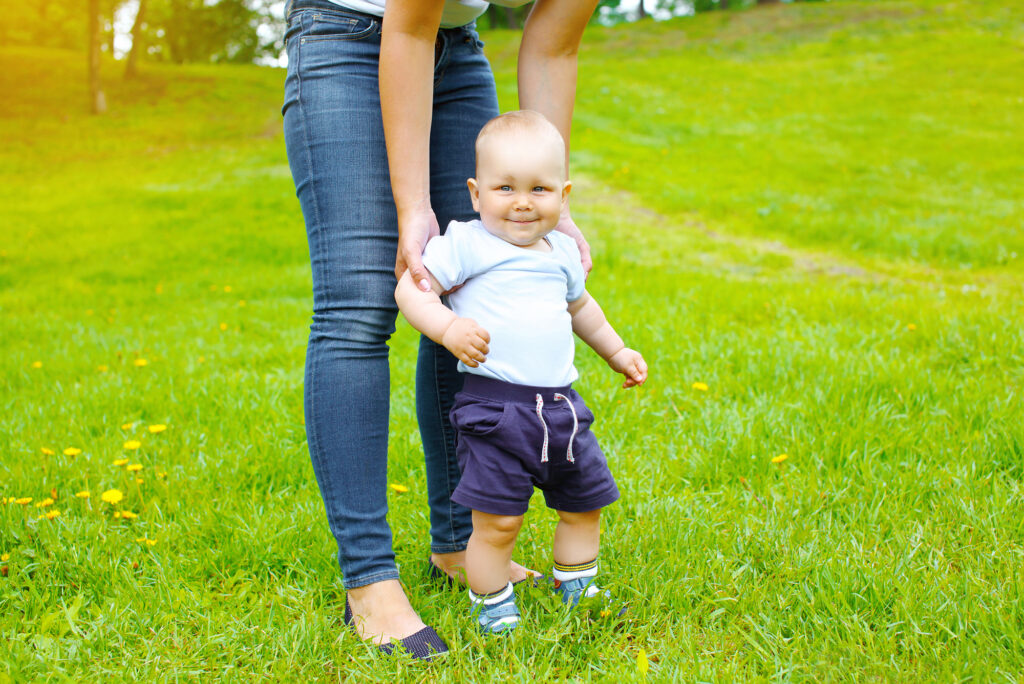Developmental Milestones
There are many developmental milestones a baby will reach in the first few years of their life. These skills will cover all areas of their development, from their gross motor and physical skills to their emotional, social, and cognitive development, to their speech, language, and comprehension skills.
While there are many developmental milestone guides and recognized developmental criteria for each step of a baby’s development, babies grow and learn at different rates. Most developmental milestones are a guide, with babies expected to master these skills between a range of ages.
Also, a baby’s development is not isolated. If a baby is developing, normally, within most of their development areas and experiencing a delay in just one skill, there is usually little cause for concern.
Walking delay: 14-month-old not walking
Walking is a crucial developmental milestone for all babies. Generally, babies will start walking between the ages of ten and fourteen months. However, some start walking even earlier and those who walk later. This delay is not necessarily indicative of a larger issue or medical concern.
If your 14-month-old has yet to take their first steps (leading you to ask, Why is my 14-month-old not walking?), it is important to monitor all areas of their physical development. Are they crawling? Can they pull themselves to standing? Are they able to cruise around the room, using furniture for support? Can they crawl upstairs?
If there are no other delays in terms of their physical development, it may just be that they are a later walker. Babies are more likely to walk late if their parents are later walkers. Also, babies born prematurely tend to develop at a slower rate than babies born at term.
Ensure that your baby has plenty of opportunities to move, both inside and outside, and that they can practice standing and climbing on a wide variety of surfaces and play equipment.

Helping babies learn to walk
Generally, baby walkers and other assisted devices are not recommended due to the risk of injury or further walking delay. The best way to help a baby learn to walk is to give them space and time to move freely.
If your baby has had plenty of opportunities to develop their gross motor skills and is still not walking independently by 18 months, you should seek professional advice.
In some cases, a gross motor or physical delay, especially one as crucial as walking, may suggest a broader issue with their development that may need to be investigated further. Developmental delays in babies can be the result of a neurological or physical condition. They may also be due to a rare disease.
Understanding all areas of your child’s development, including why your baby is not yet walking, at an age when most others are, is important to accessing the early intervention that will help with your child’s developmental delay.
While every child develops at their own pace, monitoring and understanding your child’s developmental milestones is crucial. If your 14-month-old is not walking yet, it can be helpful to gather insights and seek professional advice.



